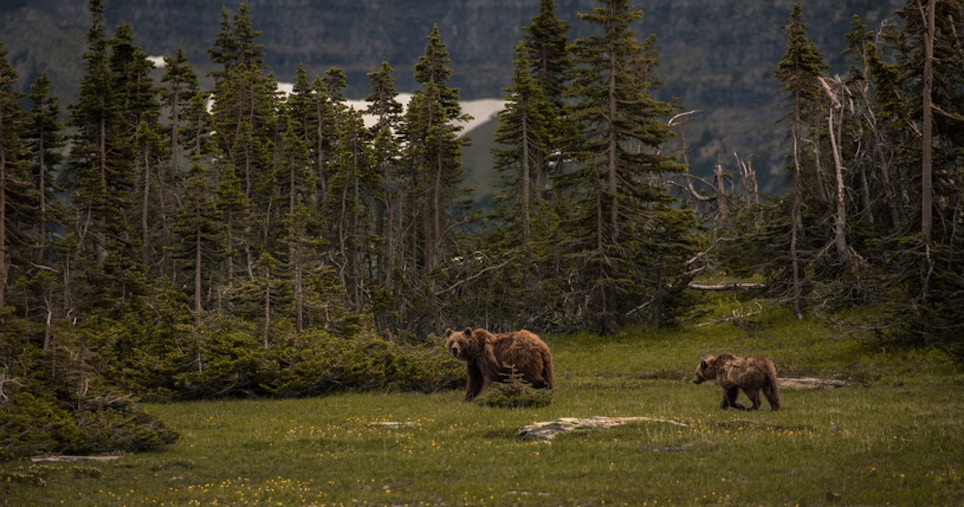
Montana and Wyoming wildlife agencies push to remove grizzly bears from the Endangered Species List. Photo: iStockphoto.com/Gus Noah
The U.S. Fish & Wildlife Service is conducting a 12-month review of two petitions to remove grizzly bears from the federal Endangered Species List. The petitions were filed by the Wyoming and Montana wildlife agencies. The two states have most of the country’s grizzly bears within their borders, and the agencies want the bears removed from the ESL so states can handle management aspects, including hunting. At issue are two populations within the Rocky Mountain ecosystem; one is around Glacier National Park, known as the Northern Continental Divide Ecosystem, and the other is around Yellowstone National Park, known as the Greater Yellowstone Ecosystem.
“The Service finds two of these petitions present substantial information indicating the grizzly bear in the Northern Continental Divide Ecosystem (NCDE) and the Greater Yellowstone Ecosystem (GYE) may qualify as their own distinct population segment and may warrant removal from the list of endangered and threatened wildlife,” the USFWS wrote in a statement issued February 3, 2023. “[The USFWS] will now initiate a comprehensive status review of the grizzly bear in the NCDE and GYE … to inform a 12-month finding.”
The decision dates to 2007, when the USFWS first tried to remove the bruins from the ESL. The on-off again de-listings have been batted around in courts. The latest delisting was 2017 in the Greater Yellowstone Ecosystem. The 9th Circuit Court of Appeals overturned the delisting just days before hunts were to take place in Wyoming and Idaho. Since then, neither the Trump nor Biden administrations did anything significant until this latest decision by the USFWS to review the petitions.
“FWS took a step in the right direction today, which is a testament to the strength of grizzly populations in Montana,” Sen. John Tester (D) said in a press release. “Now state government needs to develop science-based management plans to ensure success, and I’ll hold the Biden Administration’s feet to the fire to provide support.”
Wyoming Gov. Mark Gordon said its state’s hunters and others have contributed well enough time, money and research into the bear restoration.
“Wyoming’s petition, filed early last year, shows that — after 46 years and over $52 million dollars of investment by Wyoming sportsmen and women — the population of the [grizzly] bear is far above long-established recovery goals,” Gordon said in a statement. “In addition, Wyoming has an established framework to provide adequate protection and management of the bear in the future. I trust the USFWS will continue to use the best scientific evidence, and I hope that Wyoming will soon manage this species as part of our treasured wildlife populations.”
Proponents urging a judicious approach say pushing for a hunt too soon might have negative repercussions. Others want things moving at “all gas, no brakes” levels to get going. Opponents are girding their loins for yet more appeals. As usual, somewhere in the middle may prevail. Whatever happens likely will be challenged, again, in courts.
“[The] findings represent a relatively low bar, requiring only that the petitioner provide information that the petitioned action may be warranted,” the USFWS said in its statement. “The next steps include an in-depth status review and analyses using the best available science and information to arrive at a 12-month finding on whether the removal of ESA protections for grizzly bears in the NCDE and GYE are warranted. If so, removing ESA protections would then be initiated through a separate rule making process, with additional public notice and comment.”





